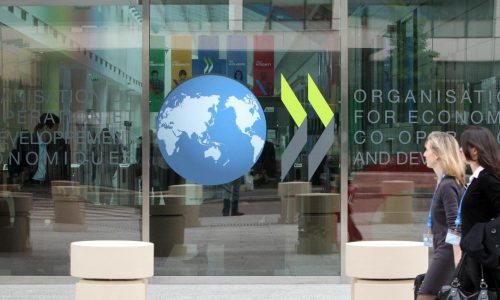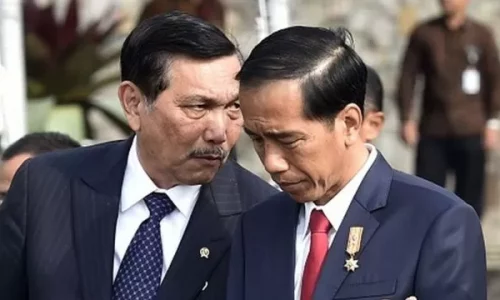The Ministry of Energy and Mineral Resources (ESDM) in Indonesia plans to build a nuclear power plant (NPP) as part of its efforts to achieve the Net Zero Emission (NZE) target by 2060 or sooner. However, the construction of the NPP will require specific regulations, beyond the existing Nuclear Energy Law in Indonesia.
Dadan Kusdiana, Secretary-General of the Ministry of ESDM, explained that nuclear technology has various applications, including medical, food production, and energy generation. The government intends to develop a nuclear power plant while ensuring its safety.
To facilitate this, the government will work on specific regulations related to NPP construction within the draft New and Renewable Energy Law (New and Renewable Energy Draft Bill).
“When we talk about clean energy, one of them is nuclear energy, but this is a safety issue. So, we want to strengthen it within the New and Renewable Energy Draft Bill, particularly regarding safety. We also want to reinforce it to make it more convincing, from the permitting stage to commissioning,” said Dadan on October 23, 2023.
Separating the draft bill for efficient investment focus
The Indonesian Center for Environmental Law (ICEL), a research and advocacy institution, previously argued that the New and Renewable Energy Draft Bill could limit funding for energy transition in Indonesia. The funding wouldn’t be exclusive to renewable energy but would also cover new energy sources.
Fajri Fadhillah, Head of the Division for Pollution Control and Environmental Damage at ICEL, believed the government should exclude new energy from the New and Renewable Energy Draft Bill, converting it into only a Renewable Energy Draft Bill (RUU ET). This way, green financing could focus solely on renewable energy.
“In my view, green funding is meant for limited resources. If the Renewable Energy Draft Bill is passed, the competition to discuss a transition specifically for renewable energy will become narrower,” he said.
Fajri argued that if the Renewable Energy Draft Bill remained in place, the perspectives of funders would be mixed. They would tend to invest in new energy, reducing funding for renewable energy. Consequently, the energy transition program in Indonesia would not run effectively.
Another reason for changing the New and Renewable Energy Draft Bill to just Renewable Energy Draft BIll is that the New and Renewable Energy Draft Bill may not effectively accelerate Indonesia’s energy transition. The Draft BIll still includes new energy generators and some fossil energy sources, such as waste-to-energy power plants (PLTSa).
The New and Renewable Energy Draft Bill also addresses nuclear energy as part of the new energy to be developed in Indonesia. Referring to the World Nuclear Industry Status Report 2019, nuclear power plant investments can be up to five times more expensive than wind and solar energy investments.
Additionally, the New and Renewable Energy Draft Bill regulates hydrogen as part of the new energy without detailing the sources of hydrogen to be developed. Hydrogen can be produced from fossil energy sources (gray hydrogen) or renewable energy sources (green hydrogen).
Indonesia to build nuclear power plant by 2030
Indonesia plans to begin construction of its first Nuclear Power Plant (NPP) in November 2024, with operation scheduled for 2030. The NPP will be developed by PT ThorCon Power Indonesia on Gelasa Island, Bangka Belitung.
Bob S. Effendi, Chief Operating Officer of ThorCon Power Indonesia, announced that the first steel cutting for the project is targeted for November 2024. The project is expected to cost US$ 900 million (IDR 14 trillion), down from the initial plan of US$ 1.2 billion (IDR 18.8 trillion).








